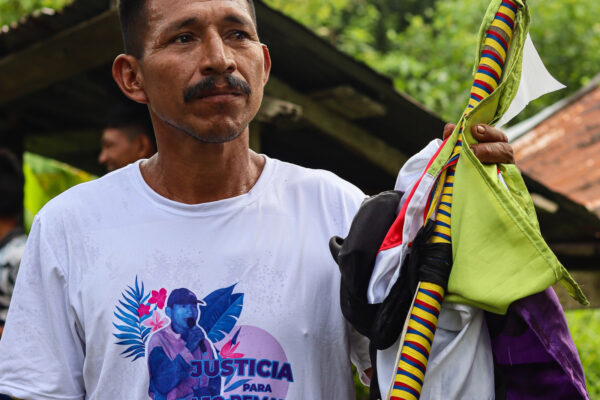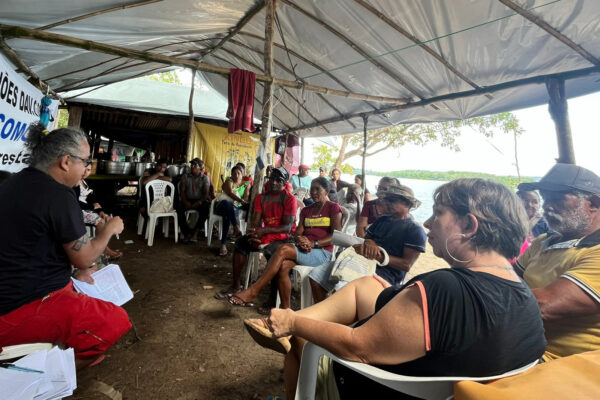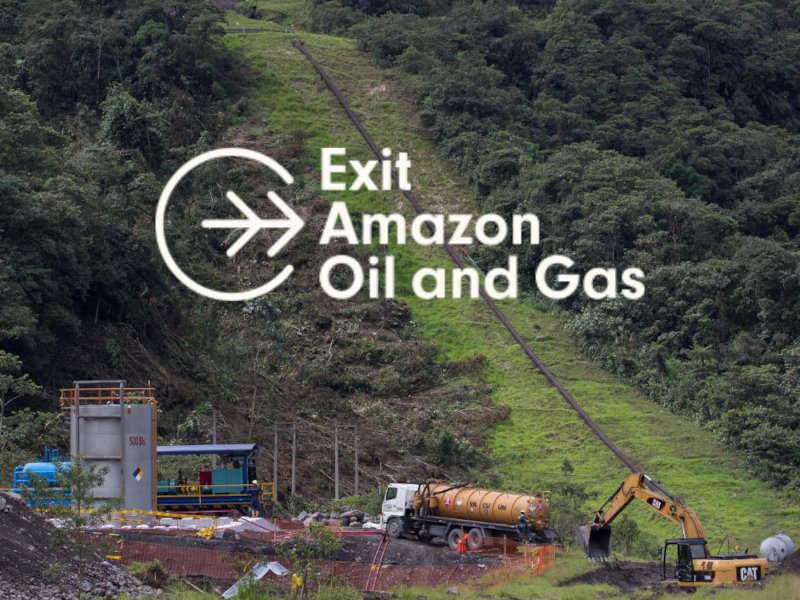“No one is free until we are all free.”
Martin Luther King, Jr.
“White supremacy reinforces itself over Black and Indigenous populations, where many parents need to not only educate their children, but also teach them how to defend themselves. We’re always at risk. They think they’ve killed a man. Instead, they’ve awakened a giant.”
Sonia Guajajara
The United States is in the midst of what some are now calling a “new civil rights movement.” Over the course of the last few weeks, sparked by outrage at the murder of George Floyd by police in Minneapolis, hundreds of thousands of protesters and activists have taken to the streets to call for an end to the racism that plagues the country’s police and criminal justice systems.
What began as a demand for the indictment of the four officers involved in the killing has rapidly grown into widespread support for defunding policing in the United States. Protesters are also calling for a redistribution of wealth and resources to Black communities long disadvantaged by the white supremacist economic practices upon which the U.S. was constructed. History has been written to uphold and justify white supremacy. It is up to all of us, not just Black people, to dismantle it.
During such a groundbreaking historical moment, it is of paramount importance that the environmental and climate movements understand the connection between our work to stop climate chaos and the movement to end systemic racism. This intersectional analysis guides us in our mission and programs at Amazon Watch.
To put it simply, we are fighting a common enemy. The same economic system that incentivizes environmental destruction and climate change incentivizes the oppression of BIPOC (Black, Indigenous, and People of Color) communities around the world. The police act as enforcers and upholders of that system. It is no accident that BIPOC, and Native Americans in particular, are more likely than white people to be killed by the police. One of the most blatant examples of the way in which state-sanctioned violence against BIPOC communities works to prioritize and protect the profits of environmentally-damaging corporate interests is the Standing Rock movement, where Native American protesters were met with government surveillance and police violence while advocating for their rights to safety and autonomy over their own lands.
Across the United States and throughout the Amazon, the areas that are most affected by environmental pollution and degradation are also the areas with the highest populations of BIPOC people. As Hop Hopkins, the Director of Strategic Partnerships at Sierra Club who recently published a piece entitled Racism is Killing the Planet, explains, “You can’t have climate change without sacrifice zones, and you can’t have sacrifice zones without disposable people, and you can’t have disposable people without racism.” Put another way, racial exploitation is a key component of environmental exploitation.
Because the climate crisis is driven by interconnected systems of oppression, our climate justice work must be intersectional and we must stand in solidarity with BIPOC communities. As a member of the Stop The Money Pipeline (STMP) coalition, we target corporations like JPMorgan Chase and BlackRock, which place profit over the lives, health, and safety of communities of color. STMP aptly points out that “The same forces that prioritize corporate property and white comfort over Black lives prioritize profit over people and biodiversity. Banks finance dangerous fossil fuel projects in communities of color because they don’t value the lives of people who live there. The white CEOs of major financial institutions don’t prioritize addressing the climate emergency because the worst impacts of the crisis are borne by people who don’t look like them or can’t afford to live in their neighborhoods. Racism fuels climate destruction.”
BIPOC people have been challenging the white supremacist legacy of slavery in the United States for centuries, just as Indigenous peoples in the Amazon have been fighting to defend their ancestral territories from the exploitation and invasion of colonialist powers for centuries. The exploitation of the Amazon today is a continuation of this pattern of colonialism and environmental racism. Almost all of the crude oil and agribusiness industries currently operating in the Amazon are owned and financed by European or U.S. corporations. This is why our work to get major financial institutions to stop financing the destruction of the Amazon is anti-colonialist and anti-racist work.
Indigenous peoples in the Amazon are actively resisting displacement, a lack of respect for their rights to Free, Prior and Informed Consent (FPIC) and sovereignty, and the destruction and rapid urbanization of the rainforest. These problems are a direct consequence of the industrial activities that contribute most to climate change: fossil fuels and deforestation. This is why the protection of human and Indigenous rights is so critical to the environmental movement and why Amazon Watch prioritizes the amplification of Indigenous voices and demands in our mission to protect the Amazon from industrial exploitation.
Amazon Watch stands with BIPOC communities across the world that are calling for an end to an economic model that consistently prioritizes the enrichment of white supremacist and colonialist powers over the climate and the people who best sustain its health. We encourage our white supporters to educate themselves about the history of colonialism and white supremacy in the United States and Latin America, and to embrace an intersectional movement for environmental and racial justice by fully supporting the Movement for Black Lives and the demands of Black leaders in their local communities.
If able, we recommend that supporters of our work also donate to these local, Black-led, and climate justice organizations:
- Black Organizing Project is a Black member-led community organization working for racial, social, and economic justice through grassroots organizing and community-building in Oakland, California.
- Black Earth Farms is located in the California East Bay providing Community Supported Agriculture (CSA) on a sliding scale to BIPOC in need of fresh produce, as well as COVID-19 emergency food relief. Led by BIPOC, Black Earth Farms is an agroecological collective that aims to be a “lighthouse organization” for occupied Ohlone territory/Bay Area food sovereignty.
- Urban Tilth hires and trains local residents to cultivate agriculture in west Contra Costa County to help our community build a more sustainable, healthy, and just food system.













